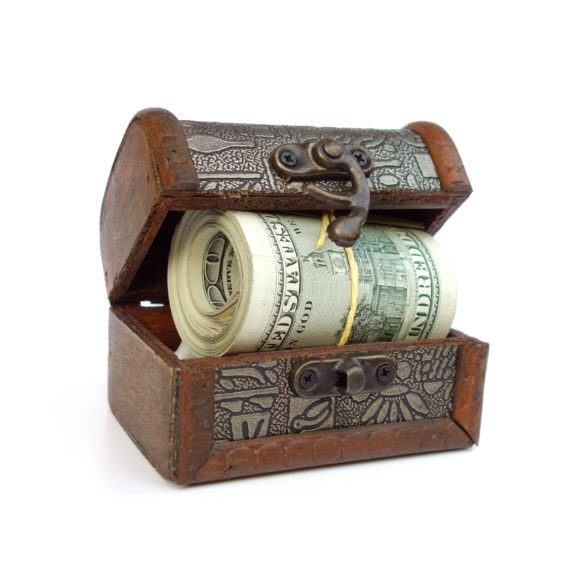Do loss ratios matter? The old school answer is: “Absolutely! You are crazy for even asking the question!”
Of course, loss ratios still matter, but how much they matter and how they matter may no longer be the same. I’ve recently had several agency owners who were selling their agencies advise me that my insistence on their providing loss ratios was a waste of their time. It was a waste of time because the buyers to whom they were talking did not care about loss ratios. If this is true, and I suspect that some buyers do not care about loss ratios, agency acquisitions are in a huge price bubble reminiscent of the highly dubious financial products associated with mortgages in the 2000s.
If their message is true, if agency values really are not in a bubble and if the buyers are not simply ignorant, then it means the buyers have deals in place with carriers that pay a lot of money without regard for loss ratios. If this is the case, which I suspect it is in some situations, then carriers are no longer asking some big players to manage their loss ratios. They are not even holding these large agencies/brokers to be as accountable for loss ratios as they hold their small agencies with $500,000 premium. A double standard has been created.
A third possibility is that many agencies are not owned by insurance people. These agencies are owned by money people, whether banks or private equity. These owners often have a quite different perspective toward loss ratios. I have had managers of bank-owned agencies and bank CEOs tell me loss ratios are not important. Period. They’ve been told they are not important by buyers of agencies and sometimes, I suspect, by specific deal brokers of agencies that just want to get deals done.
A different attitude exists with some Millennial agency owners, too. Their perspective is just different in that they are not responsible for loss ratios. That is the companies’ job.
Good Loss Ratios
These perspectives and attitudes are just simply bizarre to an old-school person like me because loss ratios clearly still determine profitability for companies and companies are still clearly rewarding agencies well that have good loss ratios, albeit with a few more strings attached.
My hypothesis is this: Maybe loss ratios do not matter to the extent industry veterans think. Maybe loss ratios do not possess the same historical importance for several related but different reasons and an opportunity exists in understanding this new reality, if a new reality exists. In a sense, if my hypothesis is correct, this development is akin to the theme of the book, “Who Moved My Cheese?” by Dr. Spencer Johnson. The decreased importance of loss ratios is a cheese moving event.
Everyone saw the bailout of the banks. The bailout that through subsidies continues to this day. Bailouts are only necessary for firms run by incompetent people or people willing to take ridiculous levels of risk. People saw that prudent, intelligent business practices are taxed to subsidize incompetent gamblers. Add to this how start-up firms are sold, sometimes before they ever even make a sale much less a profit, for billions simply because of leverage, near zero interest rates, and a monetary supply that has doubled since the financial crises.
Now this industry sees insurance agencies that are often poorly run and without a real future sold for record prices to firms that promptly alienate the best employees and cannot generate true organic growth (meaning material net organic account growth combined with non-price and non-exposure growth commission/fee growth). An attitude has therefore developed that profitability is nice but not necessary.
Companies are contributing to this perspective because the past 12 years have been the most profitable 12 years in the industry’s history (especially if adjusted for the 2008 results of a half-dozen mortgage guaranty insurance companies whose loss ratios were in the tens of thousands that year). There are multiple reasons they are making so much money but one key reason is the world has truly become a safer place because of technology, improved legal environments partially limiting ambulance chasing attorneys, and some luck (the longest period of time without a material hurricane hitting and causing insured wind losses).
Technology will continue to cause a decrease in losses and therefore, companies likely will continue to be profitable. Historically, insurance companies struggled to make underwriting money and now that the good ones do not have to struggle, they have reasonably decreased the emphasis on loss ratios. Instead they too are focusing on growth.
The Millennial generation is sometimes contributing to this perspective by not differentiating between making a profit and making money developing an unprofitable business but selling it before said business crashes. Success is defined as “Do I make money?” instead of “Does the company become a viable, profitable, on-going business?”
I absolutely am seeing these businesses developed in the insurance industry whether as agencies, support businesses, IT, and even I suspect insurance companies.
A fourth contributor is the companies that are not capitalized or rated as well as most industry veterans prefer. But they get their licenses, sell a lot of insurance, and prove that prudence, as most know it, is not required because maybe the state fund will bail out everyone.
De-emphasized Profitability
All these factors, for different reasons, de-emphasize profitability from many angles and maybe loss ratios are both a contributor and a victim of this new perspective. The implications are huge from two angles.
The first is that because companies in total are so profitable and because losses will continue to decrease as new technology is installed, agencies simply must sell more.
The rewards for doing so, with some strategy, will be great. Do not ignore loss ratios, but true material organic growth with decent, but not great, loss ratios is the Holy Grail in today’s insurance world.
The second angle is dangerous. Prudent carriers and agencies are going to be pressured by people and companies, each for their own reasons, that operate without profit. These latter entities will force profit compression for all.
Do not ignore loss ratios, but true material organic growth with decent, but not great, loss ratios is the Holy Grail in today’s
insurance world.
A strategy will be required to outlast and outlast is key because with all the free money floating around, these unprofitable firms can last longer than reasonable.
This includes outlasting and outcompeting buyout firms whose competitive advantage is nothing more than having a lot of cash/access to debt. The good news is that such strategies are available and with good execution, this environment provides an ideal scenario in which to have a lot of profitable fun.
It is your choice whether to fully engage in this challenge or continue twiddling one’s thumbs that your cheese got moved. Share this article with a colleague.
Was this article valuable?
Here are more articles you may enjoy.



 Florida’s Commercial Clearinghouse Bill Stirring Up Concerns for Brokers, Regulators
Florida’s Commercial Clearinghouse Bill Stirring Up Concerns for Brokers, Regulators  Florida Senate President Says No Major Insurance Changes This Year
Florida Senate President Says No Major Insurance Changes This Year  Beazley Agrees to Zurich’s Sweetened £8 Billion Takeover Bid
Beazley Agrees to Zurich’s Sweetened £8 Billion Takeover Bid  Chubb Posts Record Q4 and Full Year P/C Underwriting Income, Combined Ratio
Chubb Posts Record Q4 and Full Year P/C Underwriting Income, Combined Ratio 



